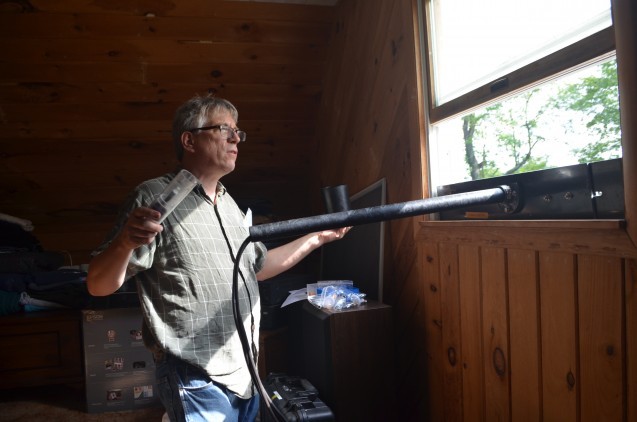Lead author Reynold Panettieri, a professor of pulmonary medicine at UPenn, said the study did not prove that fracking itself was causing the illnesses, but the said hat it was suggestive. One factor, he said, could be tremendous increases in diesel exhaust and noise from big trucks; these, he said, could translate into disrupted sleep, stress and rising hypertension. Panettieri said the rise in hospitalizations was striking because it took place in such a short time.
An increasing number of studies has linked fracking in Pennsylvania and elsewhere with groundwater contamination, but no one has yet proved health effects resulted. The UPenn researchers say they hope to track this in the future.
Researchers at Lamont have begun studying drinking wells in heavily fracked areas of Pennsylvania in hopes of establishing more firmly whether certain substances are being introduced via fracking. Planned studies would include sampling of neighboring drinking wells before, during and after fracking. The researchers also hope to monitor air quality within homes near drill sites. They have already placed air monitors and sampled water in some homes near active or planned drilling sites for a pilot study.
The PLOS ONE study’s coauthors include Lamont geochemists Steven Chillrud, Beizhan Yan and Martin Stute; and Matthew Neidell of the Mailman School. It was supported by the National Institute of Health Sciences.
RELATED: SLIDESHOW ON AIR AND WATER MONITORING IN THE AREA

